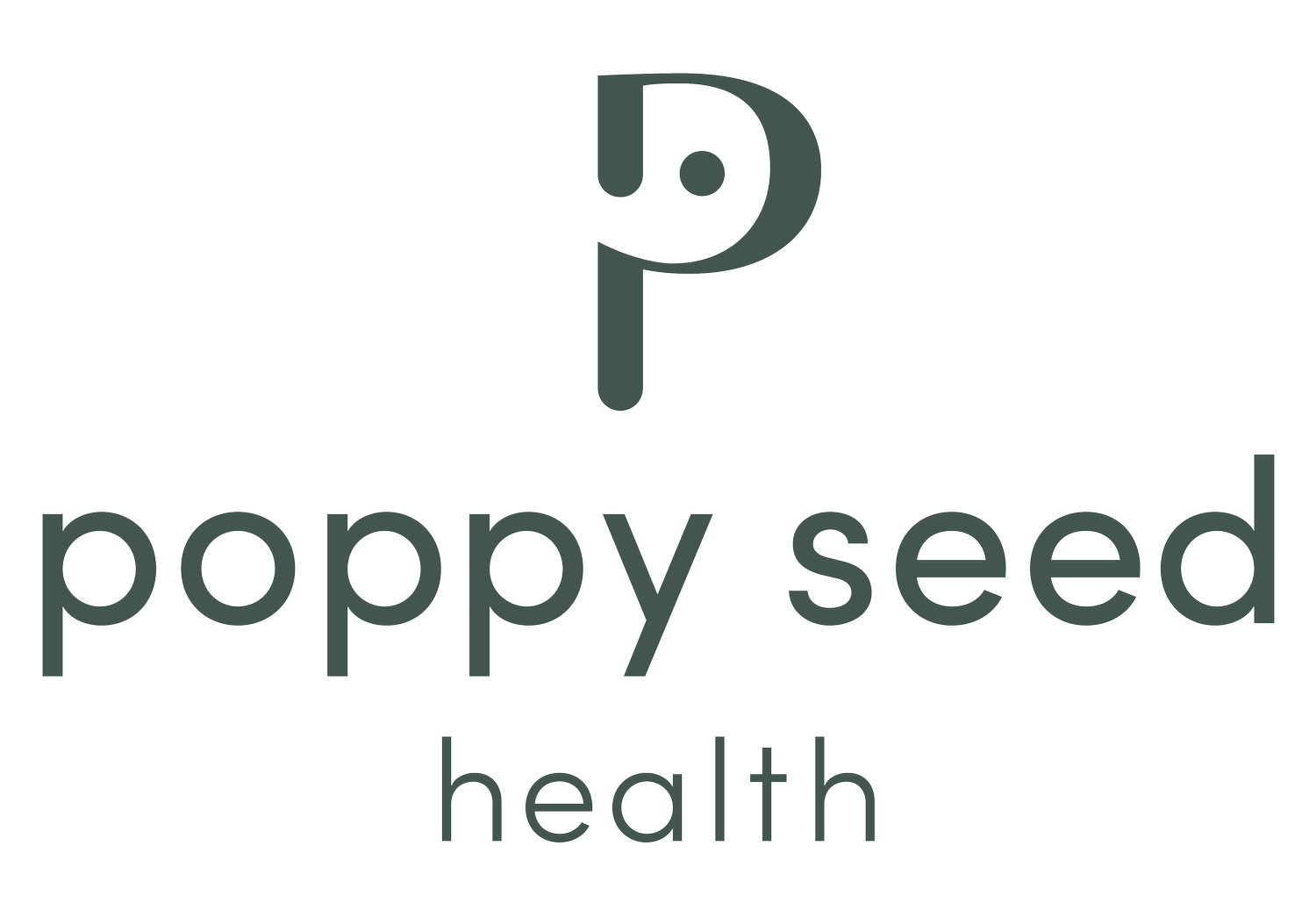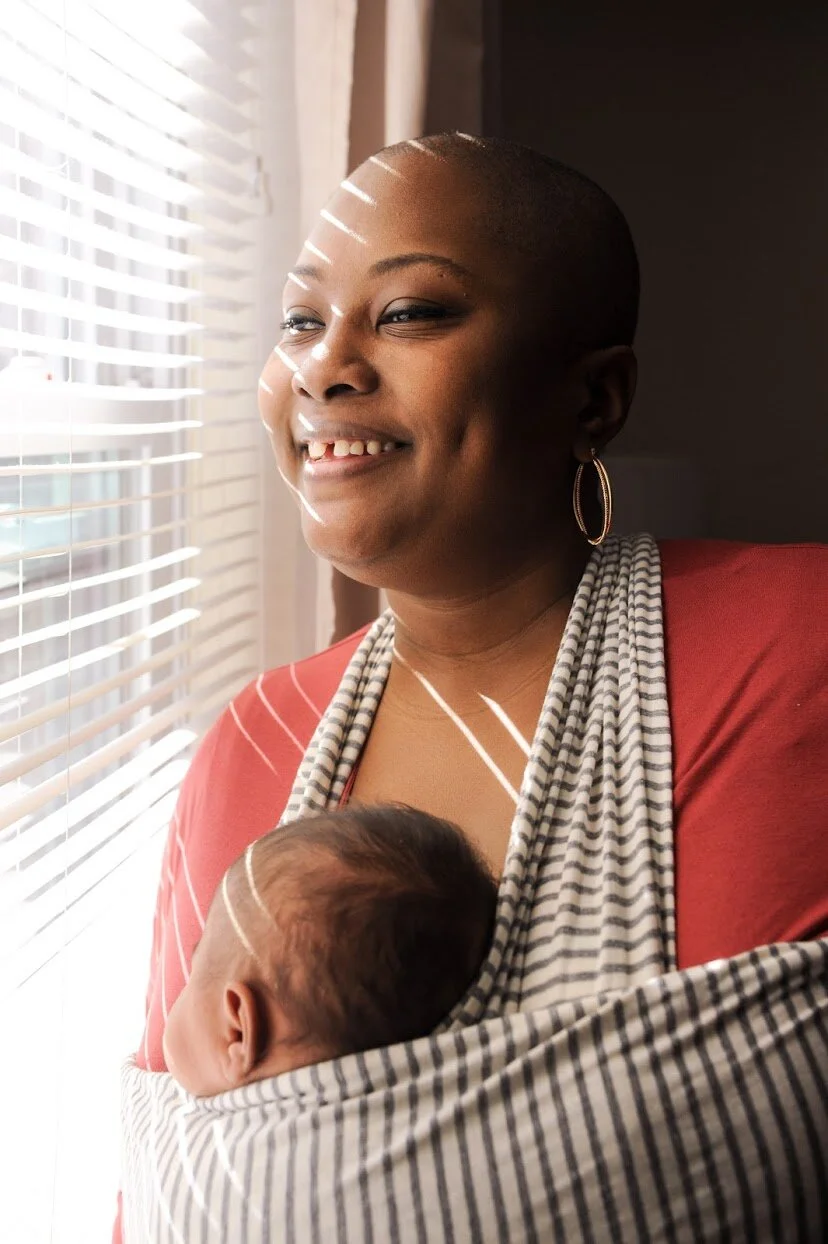Spotlight: Interview with Jae Powell, Social Worker, Therapist and Rainbow Mama
We connected with Jae Powell, social worker, therapist, and rainbow mama, to learn about her journey from losing her son Isaiah to giving birth to a healthy baby girl. “I don’t know which was harder - pregnancy loss or being pregnant after a loss,” Powell says.
In 2017, I decided the time had come and I was ready to be a mother. For me, becoming a mother and being partnered did not go hand in hand so I made the decision to become a single mom by choice.
Since I was diabetic and had an auto-immune disease, I was discouraged by the infertility coordinator who said that if I got pregnant it would be a “train wreck waiting to happen.” Out of embarrassment, I waited a few months to begin a round of IUI. My second round was a success and I was elated to be pregnant. Towards the end of my first trimester, my care was transferred from the infertility coordinator to an obstetrician in the same practice.
Towards the end of my first trimester, my care was transferred from the infertility coordinator to an obstetrician in the same practice. She periodically would ask about my two pre-existing illnesses but never suggested that I needed closer monitoring. Around 15 weeks, I went to see my endocrinologist and they asked which fetal medicine doctor was monitoring the pregnancy. When I told her I wasn’t seeing a high-risk pregnancy doctor, she was surprised.
My appointment with the specialist was right in time for the 20-week anatomy scan. To say I was filled with excitement is an understatement as I knew this was a major ultrasound. Unfortunately, what started as a joyous visit quickly turned after the doctor explained that my son’s growth had stopped at some point and it was likely due to a condition called placenta insufficiency. He couldn’t say for sure, though. The blood flow from the placenta to the baby was not consistent, causing his heart to work even harder. He apologized and said that if he saw me earlier in the pregnancy, he might’ve been able to treat it. The doctor told me that if I was still pregnant at 24 weeks he could attempt to deliver my baby. I left that visit feeling defeated, but I knew in my heart that I would make it to 24 weeks.
Two weeks later, a snowstorm was due to hit the area and I knew the impending weather would likely cause my ultrasound, which was scheduled for the next day, to be cancelled. I called the office and requested to come later in the day. While waiting for the train, I felt an unusual amount of movement inside of my uterus. I rubbed my belly, sang songs, and even laughed because the movement was so sharp it tickled. My mother, friend, and little sister accompanied me to the appointment. I was so thrilled that he had been moving and wanted everyone to see him in action.
Within seconds of beginning the ultrasound, the technician sighed and said, “There’s no heartbeat.” I quickly asked my little sister to leave the room. While waiting for the doctor to come in, it hit me. When I was waiting for the train, singing and rubbing my belly thinking he was moving around, he was dying. I tried so hard to remember that feeling of him moving only to find out that he had been struggling to stay alive.
The doctor on staff explained my options (natural labor vs induced), and I opted for induced. I went to the hospital and was induced around 9pm. The hospital staff seemed to have no empathy; they were silent. While reviewing the paperwork for the birth and death certificates, the nurse questioned the fact I didn’t have a father listed. “He was donor conceived,” I said but she continued to question me.
That night seemed to go on forever, and the next morning, at 8:33am, I gave birth to a little baby boy I named Isaiah. Less than 10 minutes after I delivered, a different nurse fleetingly asked if I wanted an autopsy and I declined. I didn’t know what an autopsy entailed. Had I known, or had I been asked at a later time, I would have consented. Moments later, she returned with a horrified look on her face and I glanced over to see what she was looking at. It was Isaiah.
I held him for a few minutes before passing him to my mother because I felt myself getting attached and knew it would be difficult to let go if I held him any longer.
Within two hours, I was discharged from the hospital because they thought I would not want to hear other women giving birth. I was wheeled downstairs in a daze, trying to understand how 24 hours earlier I was pregnant and now I was leaving the hospital without a baby.
A year later, I went to another clinic and continued my attempts at trying to conceive. After several unsuccessful cycles, I became pregnant, again.
I don’t know which was harder - pregnancy loss or being pregnant after a loss. It was like holding my breath daily for months. I didn’t enjoy the feeling of my baby moving around because it reminded me of how it felt when Isaiah died. I hated every moment of being pregnant and wanted my unborn child out. I was terrified of losing another baby. I believed she would’ve been safer outside of my body.
Being in therapy helped me immensely during that time and still does. I have an amazing therapist who held a space where it was safe to experience the myriad of feelings I felt. She allowed me to sit with my feelings without dismissing them and I believe that is what kept the fear from consuming me. I was given the time and space to be acknowledged and wasn’t forced to feel grateful that I was pregnant again. I changed providers and my experience the second time around was drastically different. I felt confident in my team of medical professionals, which included a high-risk pregnancy doctor from day one.
Two weeks before Christmas, I gave birth to a healthy baby girl.
There were several points in my journey that could’ve been different, and I often wonder if I was a white woman, would I have had better care.
Would the severity of my medical conditions during pregnancy have been explained to me? Would I have been referred to the appropriate medical professional to monitor the pregnancy? Would they have paid attention during the ultrasounds and noticed he was weeks behind in size? Would they have asked my little sister to leave the room before telling me my baby had died? Would the nurse have argued with me mid-labor about not naming a father on the paperwork? Would they have taken the time to explain the autopsy procedures?
Would the nurse have thought about the look on her face as she carried my lifeless son?
There are so many moments where I wonder if race was the deciding factor for the level of care, respect and concern I received.
When I reflect on what was the most horrifying experience of my life, I think about being a Black woman and what that means in a country where studies show many doctors believe we feel less pain and our concerns are dismissed or glossed over. I think about how my medical care was heavily influenced by the perception the doctor had of me as a Black woman. I often wonder if white women consciously fear they will get subpar care based on their complexion. I think about the history of access to quality healthcare for Black people in the United States and the disparities in the rates of Black maternal and fetal mortality. I think about how my son is included in those statistics.
And I pray my daughter never is.


